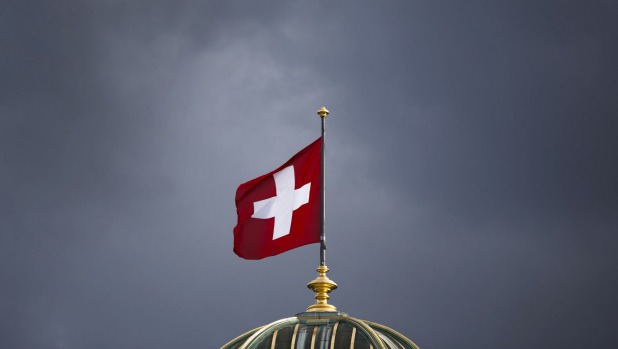-
Tips for becoming a good boxer - November 6, 2020
-
7 expert tips for making your hens night a memorable one - November 6, 2020
-
5 reasons to host your Christmas party on a cruise boat - November 6, 2020
-
What to do when you’re charged with a crime - November 6, 2020
-
Should you get one or multiple dogs? Here’s all you need to know - November 3, 2020
-
A Guide: How to Build Your Very Own Magic Mirror - February 14, 2019
-
Our Top Inspirational Baseball Stars - November 24, 2018
-
Five Tech Tools That Will Help You Turn Your Blog into a Business - November 24, 2018
-
How to Indulge on Vacation without Expanding Your Waist - November 9, 2018
-
5 Strategies for Businesses to Appeal to Today’s Increasingly Mobile-Crazed Customers - November 9, 2018
Swiss elections: anti-immigration SVP party heading for record victory
The shift to the right comes as surging numbers of migrants and refugees moving through Europe have heightened the focus on the issue in Switzerland, even though the wealthy Alpine nation is yet to be significantly affected by the crisis.
Advertisement
The vote to fill the two legislative chambers – the 200-seat National Council and 46-member Council of States – comes as the gfs.bern poll found almost half of Swiss listed immigration, integration and foreigners as their top concern. The party saw an all-time high in 2008, winning 28.9 percent of the vote in general elections, and though it lost a few ground in the most recent elections in 2011, it still finished with 26.6 percent, Agence France-Presse reported Sunday.
Along with advances made by the centre-right Liberal Party, Switzerland’s third-largest party, which took three additional seats on top of its current 30, SVP’s gains should tip the scale in parliament from the centre-left towards a centre-right majority.
The Social Democratic Party stands to lose two seats for a total of 44, according to projections.
Parties in the center, like the Conservative Democrats and the Christian People’s Party, as well as the Greens all lost seats.
SVP, which has previously sparked outcry with campaign posters such as one showing one of three white sheep kicking a black sheep off the Swiss flag, has in its national push this year been less provocative, resorting mainly to posters featuring pictures of candidates with the slogan “Stay free”.
“The dominant issue in the campaign has been asylum seekers and migration policy, and the SVP is seen as the best party to handle these problems”, said Lukas Golder, spokesman for polling institute GFS Bern, speaking before the election results were finalised.
“There have been concerns that the Swiss system could be destabilized by people who cannot be integrated into the country”.
Switzerland’s pension system, the country’s unemployment rate and its relationship with the European Union were the other key issues, although all lagged behind immigration in voters’ deliberations, according to pre-election polls.
The result, based on initial projections by Swiss TV, gives the SVP 65 seats in the 200-member lower house of Parliament, the largest number for any Swiss party in at least a century.
Still, the parliamentary election is unlikely to trigger a radical change in the short term.
Power-sharing and consensus rule are the norm in Switzerland and elections rarely lead to major shifts in parliament or the makeup of the government, which does not directly reflect the power balance in the house.
Advertisement
Joachim Blatter, professor of political science at the University of Lucerne.





























